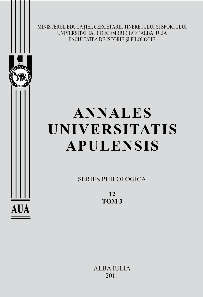Vintilă Horia, Cavalerul resemnării. În exil sub semnul maleficului
Vintilă Horia, Cavalerul resemnării (The Knight of Resignation).In Exile under the Sign of the Malefic
Author(s): Sofia Sonia ElvireanuSubject(s): Literary Texts
Published by: Universitatea »1 Decembrie 1918« Alba Iulia
Keywords: parable; exile; human condition; choice; interferences
Summary/Abstract: Vintilă Horia tackles the history with regard to the origin of evil and individual’s alienation in a similar way to Albert Camus. His novel, The Knight of Resignation, is a parable about totalitarianism, and ideological evil that makes the human being feeling alienated, in a way that is similar to the situations from Albert Camus’s novel, The Plague. In Vintilă Horia’s opinion, the existential evil can be eradicated only through knowledge. The temporary victory against a visible enemy is not essential, but the people’s eliberation from the common threat with dead since it means an eliberation through knowledge meant to eliminate the source of evil inside the human being, and not its forms. In his novel, The Plague, Albert Camus offers a pragmatic solution against the evil, which is the action that gives sense to existence in an universe where the human being is defined through the act itself, and voluntarily action where the Christian morality does not exist. As far as Vintilă Horia’s work is concerned, the interior metamorphosis existes under the auspices of the Christian morality, and the ideological evil, the tyranny of empires are all consequences of the lost of faith. The communist and nazist hell generated by ideologies brings forward the awareness of a permanent danger of re-activating the evil in the world and the necessity to erradicate its source in order to help peoples to live their life in freedom. This vision explains the philosophy of resignation defended by Horia’s hero. Despite this attitude of initial resignation, Radu-Negru becomes a fighter in the end since he fights for a collective destiny, and not as individual as he is considered in the beginning of the work. Before the moral evil, de-humanization through the mutilation of prisoners’ consciousness meant with a view of transforming the traitors and tortionaries of the power, the exiled prince comes back to finally defend the eternal values of the Romanian identitary space, and the ancient heroes who do not give up in front of danger. The final option of Horia’s hero, the common cause of a nation that rebells itself against the oppression, is similar to the one of Camus’s heroes.
Journal: Annales Universitatis Apulensis. Series Philologica
- Issue Year: 12/2011
- Issue No: 3
- Page Range: 55-68
- Page Count: 13
- Language: Romanian

